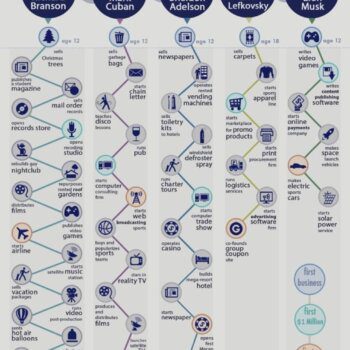In his role as CEO of a listed company (MBH Corporation PLC), ambassador for a major deal website (DealGateway.com) and High Commissioner for the World Business Angel Investment Forum (WBAForum.org), Callum Laing gets to hear from a lot of investors about what is working, and what is not. Here he shares the seven biggest reasons that you could be at an unfair disadvantage from the outset.
It is often said that the rich get richer and the poor get poorer. One of the reasons for this is that the rich get access to deals that most people will never see. In fact, even of the rich, it is only a very small percentage that get access to the really good deals.
1 – Track record. You do not have one. At least not one that is successful enough that the best deals will come to you. During the Global Financial Crisis, Warren Buffet was offered deals which were basically no lose deals. He had the reputation and the track record that those deals only went to him.
2 – Network. Being well connected is not just a nice to have, it can be critical when it comes to attracting the best deals. Tim Ferris was one of the early ‘Angel’ investors in deals including Uber, Facebook, Twitter and others. This was not because of any specific ‘angelic’ skills he had, or any track record of investing, this was purely because of the incredible network he had built.
3 – ‘Hope’ Strategy. Many ‘average’ investors, whether it’s angel investing or stock picking are relying on ‘hope’. It is a focus on the ‘possibility’ for an investment to give returns rather than the ‘probability’. Better investors focus on downside protection with upside being the icing on the cake. Hope strategy is often betting blind – with better investors demand more transparency.
4 – Herd Following. Through laziness or not trusting our own decisions, we wait for others to make the first move. If everyone else is investing in Crypto, or whatever the next trend is, then the social proof gives us comfort to invest too. However, by the time the herd is investing, the smart money is already on the way out. Which leads to the next point.
5 – Know the Rules. It is only possible to understand what is coming next if you understand the rules that others are playing by. Too many angel investors get burnt when Venture Capital comes into a deal. They have different rules and different motivations. A hedge fund shorting a stock may be playing a very different game from the one you are, as the saying goes, ‘if you don’t know who is the mark at the poker table, it’s probably you’.
6 – Not Enough Capital. The best deals naturally gravitate to those with the deepest pockets. Having a lot of money does not guarantee you will only invest in great deals, but not having enough money guarantees you will never get the best options.
7 – Timing. As investors we are constantly hearing about how successful others are. Fear can drive us into or out of deals at the wrong times. Into a startup before it has proven market demand, or into a stock after it has already soared 40%, or out of a stock because it has just dropped 50%. Sophisticated investors know exactly what game they are playing and what timelines to follow. They do not let fear dictate their timing.
And a bonus point: Learning comes from cycles. Experts in any field have had many many failures to learn from which has led to their ultimate success. As most of us do not have the funds to stomach significant lessons, we are quick to panic when things go wrong and consequently do not learn the lessons. Successful investors know that like in any game, you cannot be winning all of the time – and that the only real loss is if you exit the field of play.
Callum’s new book ‘Entrepreneurial Investing – Connecting Sophisticated Capital with Talented Small Businesses’ with the answer to how you can overcome those issues and create real impact with your investments is now available on Amazon.com
And you can sign up for updates and opportunities from Callum directly at CallumLaing.com





























